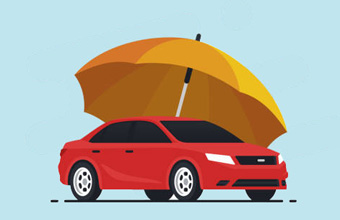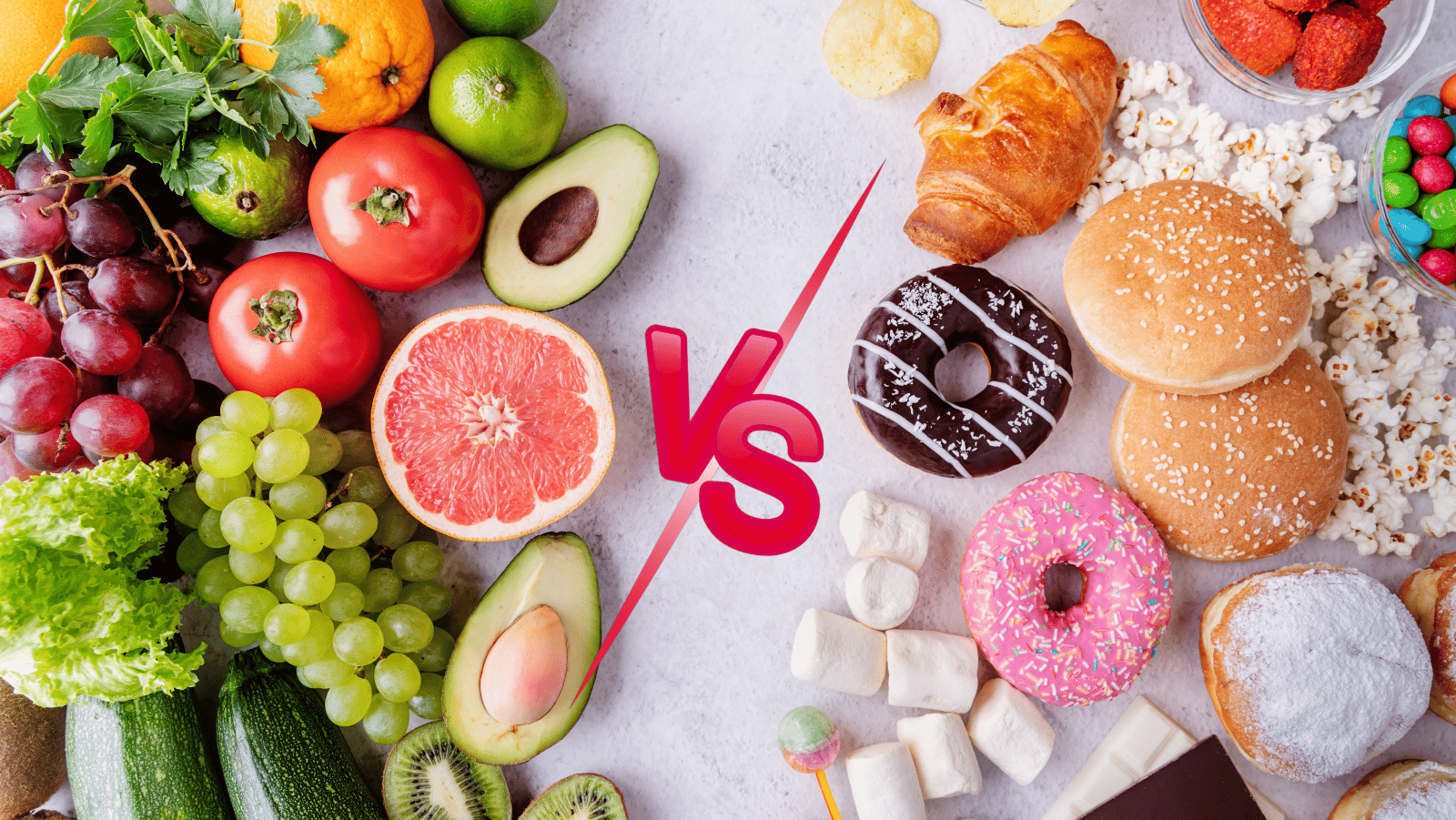What is an RV insurance policy?
An RV insurance policy is a type of insurance policy that protects your recreational vehicle (RV). It can help cover repairs or replacement costs in the event of an accident, theft, or another covered event. It can also provide liability coverage if you are found at fault in an accident.
Why do I need RV insurance?
RV insurance can help give you peace of mind while you are on the road. It can help protect your investment in your RV, and it can also provide financial protection in the event of an accident or other covered event.
How much RV insurance do I need?
The amount of RV insurance you need will depend on several factors, including the value of your RV, the type of RV you have, and how often you use it. You should speak with your insurance agent to determine how much coverage is right for you.
What does RV insurance cover?
RV insurance can cover a variety of things, including repairs or replacement costs for your RV, medical expenses, and liability coverage. You should speak with your insurance agent to determine exactly what is covered under your policy.
Is RV insurance required?
RV insurance is not required in all states, but it is a good idea to have if you own an RV. It can help protect you financially if you are involved in an accident or other covered event. You should check with your insurance agent to see if RV insurance is required in your state.
Types of RV insurance coverage
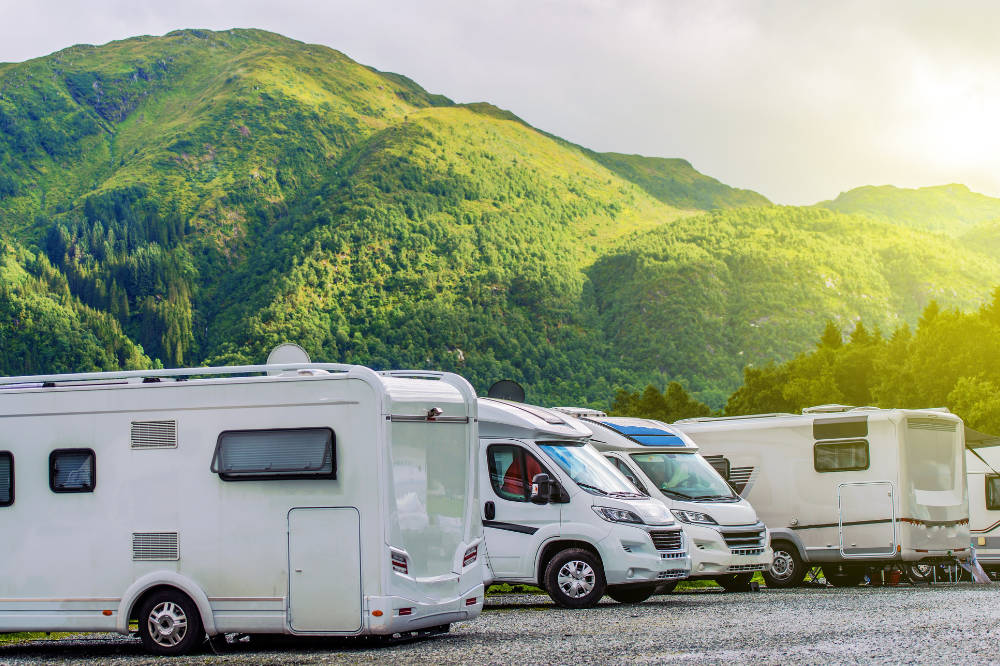
There are different types of RV insurance coverage, and the type you need will depend on how you plan to use your RV. For example, if you only take your RV out for occasional weekend trips, you may not need as much coverage as someone who lives in their RV full-time or uses it for business purposes.
Here are some of the most common types of RV insurance coverage:
Collision Coverage:
This type of coverage will pay for damage to your RV caused by a collision with another vehicle or object. It is important to have collision coverage if you plan to use your RV on the road since accidents can happen at any time.
Comprehensive Coverage:
This type of coverage will pay for damages to your RV caused by events that are not collision-related, such as weather damage, theft, or vandalism. If you store your RV when it’s not in use, this coverage can protect it from damage that might occur while it’s parked.
Liability Coverage:
This type of coverage will protect you from financial responsibility if you cause an accident that damages another person or their property. It is important to have liability insurance even if you are a safe driver since accidents can happen to anyone.
Personal effects coverage:
This type of coverage will pay for medical expenses and lost wages if you or a passenger in your RV is injured in an accident. Personal injury protection is often required by state law, so be sure to check the requirements in your state.
Enhanced RV Coverage:
This type of coverage will protect you from financial responsibility if you are involved in an accident with a driver who does not have insurance or does not have enough insurance to cover the damages they caused. Enhanced RV coverage is important to have in case of an accident since many drivers do not have adequate insurance.
Personal Property Coverage:
This type of coverage will pay for damage to your RV caused by an accident. Property damage liability is important to have if you plan to use your RV on the road since accidents can happen at any time.
Optional coverages
1. Rental reimbursement coverage
This type of coverage will reimburse you for the cost of renting a replacement RV if your RV is damaged in an accident and is unavailable for use. It is important to have if you rely on your RV for transportation since you will need a way to get around while your RV is being repaired.
2. Roadside Assistance Coverage:
This type of coverage will assist if your RV breaks down or you have a flat tire. Roadside assistance coverage is often included in comprehensive and collision coverage, but it can also be purchased as a separate policy.
3. Towing Coverage:
This type of coverage will pay for the cost of towing your RV if it breaks down or you have an accident. Towing coverage is important to have if you plan to use your RV on the road, since you may need to tow it to a repair facility.
4. Total Loss Replacement Coverage:
This type of coverage will replace your RV if it is damaged beyond repair or is stolen and not recovered. Total loss replacement coverage is important to have if you rely on your RV for transportation since you will need a way to replace it if it is totaled.
5. Custom Equipment Coverage:
This type of coverage will pay for damage to custom equipment installed in your RV, such as awnings, custom paint, or audio equipment. Custom equipment coverage is important to have if you have installed any custom equipment in your RV.
What type of vehicles are covered by the RV insurance policy?
Most RV insurers will cover the following types of vehicles:
- Motorhomes
- Travel Trailer
- Pop-up campers
- Fifth wheel trailers
- Toy haulers
Some policies may also cover other types of RVs, such as:
- Motorcoaches
- Park models
- Towable trailers
Be sure to check with your RV insurance provider to see what types of vehicles they cover.
Why do campers need an insurance policy?
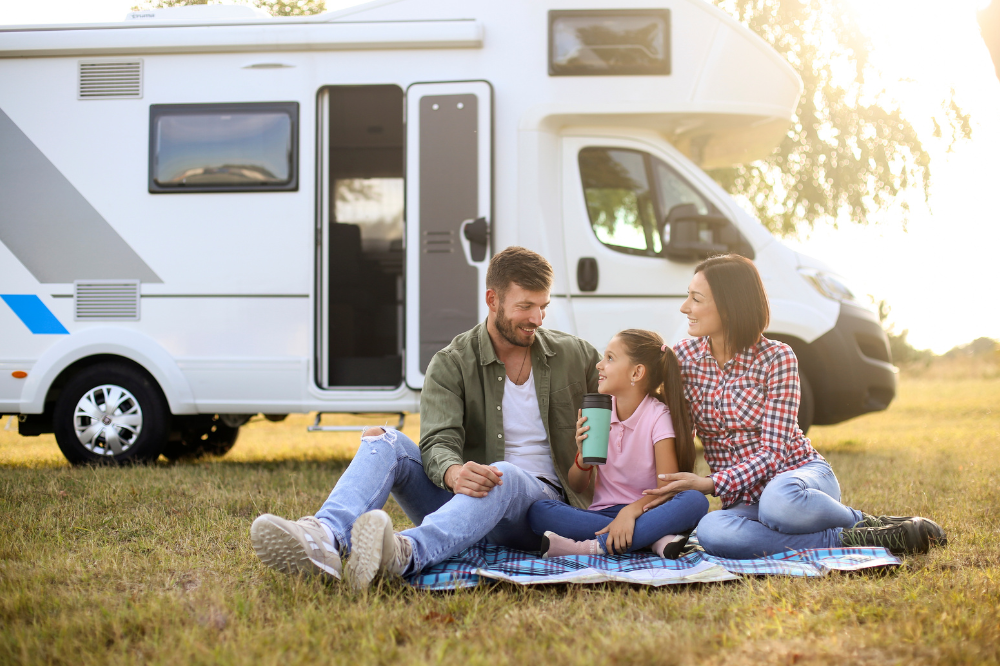
There are many reasons why campers need an insurance policy:
If something goes wrong and someone is injured, the insurance will help cover the costs of medical bills.
If the camper’s vehicle is damaged or stolen, the insurance will help cover the cost of repairs or replacement.
If the camper cancels their trip, the insurance will help cover the cost of non-refundable deposits.
How much does RV insurance cost?
The average cost of RV insurance is $1,000 per year. However, this will vary depending on the type and size of your RV, as well as your driving history. If you have a luxury RV, you can expect to pay more for insurance than someone with a smaller RV. Likewise, if you have a poor driving record, you can expect to pay more for insurance.
In general, the larger and more expensive your RV, the more you will pay for insurance. However, there are ways to save money on RV insurance. One way is to join an RV club or association, which often offers insurance discounts. Another way to save money is to purchase a policy through a company that specializes in RV insurance. These companies often have lower rates than traditional insurers.
Finally, you can save costs by bundling your RV insurance with other types of insurance, such as auto or homeowners insurance. This can often lead to discounts of 10% or more. Get a quote today and see how much you could save on RV insurance.
What type of Recreational vehicles do campers use?
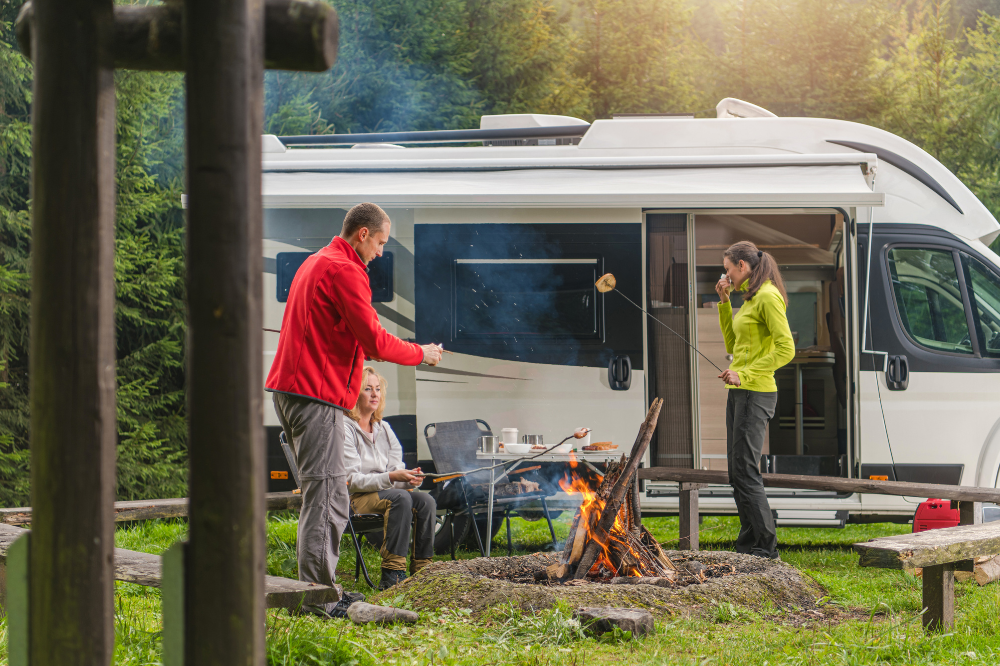
For many people, the RV lifestyle is the best way to see the country. It allows for a sense of freedom and flexibility that other types of travel simply can’t match. But what type of RV is right for you? There are a variety of different options on the market, each with its own set of pros and cons.
Camper vans are one of the most popular choices for RVers. They’re relatively inexpensive and easy to operate, and they offer a good degree of privacy. However, they can be difficult to find parking for, and they’re not well-suited for long-distance travel.
Travel trailers are another popular option. They’re larger than camper vans, so they offer more living space. They can also be towed behind a vehicle, making them easier to transport. However, a Travel trailer could be more expensive than a van, and they require a larger vehicle to tow them.
Truck campers are great for people who already own a pickup truck. They offer plenty of storage space and can be easily attached to the bed of a truck. However, they’re not very fuel-efficient, and they’re not well-suited for long periods of travel.
Pop-up campers are a good compromise between vans and travel trailers. They’re less expensive than travel trailers but provide more living space than vans. They can be towed behind most vehicles, making them easy to transport. However, they can be difficult to set up and take down, and they’re not well-suited for extreme weather conditions.
No matter what type of RV you choose, the important thing is that you enjoy the RV lifestyle!
What factors affect the RV insurance cost?
One of the most important factors that will affect the cost of RV insurance is the type and size of the RV. RVs come in all shapes and sizes, from small pop-up campers to large luxury motorhomes. The type of RV you have will impact your insurance rates because it will determine how much coverage you need and how much risk you pose to the insurance company.
Another factor that will affect your insurance cost is the age and value of your RV. If you have a newer and more expensive RV, you can expect to pay more for your insurance than someone with an older and less valuable model. This is because newer RVs are usually worth more money and therefore pose a higher risk to most RV insurance companies if they are damaged or stolen. The age of your RV will also affect your insurance rates because older RVs typically have more wear and tear and are more likely to need repairs. Where you plan to use your RV will also influence your insurance rates. If you only plan to use your RV for occasional trips, you will probably pay less for insurance than someone who uses their RV full-time. This is because people who use their RVs full-time are more likely to have accidents and make claims on their insurance than those who only use them occasionally.
Finally, your driving history will also affect the cost of RV insurance. If you have a clean driving record, you can expect to pay less for RV insurance than someone with a poor driving history. Insurance companies view drivers with a clean driving history as less of a risk, and so they charge them lower rates. If you are looking for RV insurance, the best way to get an accurate quote is to speak with an insurance agent who can take all of these factors into account.
Best RV insurance companies in the US
RV insurance companies offer a variety of coverage options to protect your RV and its contents. Some of the best RV insurance companies in the US are:
- Progressive
- Geico
- State Farm
- Allstate
- Farmers Insurance
- Nationwide
- American Family Insurance
- Esurance
- The Hartford
- Travelers Insurance
- Safeco Insurance
- Good sam insurance agency
- Auto owners insurance
These independent agents offer various types of coverage, such as liability, collision, comprehensive, personal injury protection, medical payments, and uninsured/underinsured motorist coverage. You can choose the one that best suits your needs and budget. Make sure to compare the premiums and coverage offered by different companies before buying an insurance policy.
How to get the cheapest RV insurance rates?
There’s no definitive answer to this question, as there are many factors that affect RV insurance rates. However, there are a few tips that can help you get the best RV insurance rates possible:-
- Shop around and compare quotes from multiple insurers
- Choose an insurance company with a good reputation for customer service and claims processing
- Consider raising your deductible to lower your overall premium costs
- Ask about discounts for things like safety features or loyalty programs
- Look for an RV insurance quote online
By following these tips, you can be sure to get the best possible rates on the best RV insurance coverage.
Role of National RV Association in reducing RV insurance cost
The National RV Association (NRVIA) has been working diligently to help reduce the cost of RV insurance for its members. In recent years, the NRVIA has worked with insurers to develop discounts and programs specifically for RVers that can save them money on their premiums.
The NRVIA also advocates on behalf of RVers at the state and federal levels to ensure that laws and regulations are in place that helps keep the cost of RV ownership affordable. The association is also a valuable resource for RVers looking for information on how to save money on their insurance premiums.
RV insurance is important coverage to have, and NRVIA is committed to helping its members get the best possible rates. By working with insurers and staying up-to-date on the latest developments in the industry, NRVIA is making it easier for RVers to enjoy their travels without breaking the bank.
How to reduce your premium without compromising on coverage?

There are a few things you can do to reduce your RV insurance premium without compromising coverage. One option is to raise your insurance deductible. This will lower your overall premium, but you will be responsible for paying more out-of-pocket if you have an accident or file a claim.
Another way to lower your premium is by reducing the amount of coverage you need. For example, you may want to consider dropping collision or comprehensive coverage if your RV is older and not worth as much. You should also be sure to shop around and compare rates from different insurers before buying an RV insurance coverage. By doing this, you can be sure you’re getting the best possible rate on your policy.
Finally, remember that some insurers offer discounts for things like taking an approved state RV safety course or storing your RV in a secure location. These discounts can help you save money on your premium, so be sure to ask about them when you’re shopping for an RV insurance policy.
By following these tips, you can lower your RV insurance premium without sacrificing coverage.
The importance of having adequate RV insurance protection while camping
When you are out camping in your RV, you need to be aware of the risks that come along with it. One of those risks is not having adequate insurance protection. If something were to happen while you were camping, such as your RV catching on fire, or being involved in a serious accident, you could be left with a huge financial burden if you don’t have proper insurance coverage.
That’s why it’s so important to make sure that you have adequate RV insurance protection before heading out on your next camping trip. There are several different things that your policy should cover, such as personal belongings, liability, and medical expenses. By making sure that you are fully protected, you can relax and enjoy your trip knowing that you and your family are safe in the event of an emergency.
FAQs
How much is insurance for a camper trailer?
As a general rule of thumb, you can expect to pay somewhere in the range of $200 to $400 per year for basic insurance coverage on your camper trailer.
What is the difference between RV insurance and auto insurance?
RV insurance is typically more expensive than auto insurance because it offers a higher level of protection. RV insurance covers the cost of repairs or replacement if your RV is damaged or totaled in an accident. It also covers the cost of emergency medical care if you or your passengers are injured in an accident. In addition, RV insurance provides liability coverage if you are sued for damages resulting from an accident. Auto insurance generally does not provide these same levels of coverage.
What is the difference between Camper and RV?
There are a few key differences between campers and RVs. First, campers usually refer to smaller vehicles that can be towed behind a car or truck, while RVs are generally larger and require their form of transportation. Second, campers typically have more minimalistic features and amenities than RVs, which are designed for longer-term stays and usually have more space and amenities.
Final Talk
An RV insurance policy is a type of vehicle insurance that covers recreational vehicles. There are different types of RV policies, and each one has its coverage. The most common types of Recreational Vehicles (RVs) that are covered by an RV policy are campers, trailers, and motorhomes. While it is not mandatory to have an RV insurance policy in all states, it is highly recommended because accidents can happen while camping. In the US, there are many reputable RV insurance companies from which you can purchase a policy. You can get the cheapest rates if you shop around and compare quotes from different insurers.
However, be sure to read the terms and conditions carefully before purchasing a policy to make sure you are getting adequate coverage. The NRA is a non-profit organization that represents the interests of recreational vehicle owners across North America. One of the services offered by NRA is helping members find affordable RV insurance rates through its partnership with major insurers. If you are looking for ways to reduce your premium without compromising coverage, Read our other blog on RV insurance for more information.




